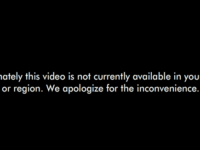When Le Devoir director Brian Myles appeared before the Senate committee studying Bill C-18 last month, he closed by urging the committee to pass the legislation quickly, stating “the time to act is now. We can’t wait two years between the passage of the bill and the CRTC regulations, because the delay will benefit opponents, giving them time to organize and undermine the spirit and the letter of the law.” While Myles acknowledged that claims regarding “theft” of news content by Internet platforms was overstated, he nevertheless expressed full support for the bill. One month later, the Online News Act is now law, Meta has confirmed that it will block news sharing before it takes effect, and the government is reportedly in last ditch negotiations with Google to stop it from doing the same.
News
The Bill C-11 Fallout Continues: Disney+ Pauses Original Commissions in Canada
The fallout from Bill C-11 has been the subject of several posts this week, including the demands from a wide range of services for exceptions to the law and warnings from streaming services such as PBS and AMC that they may block the Canadian market due to the regulatory burden imposed by the law. While those stories focus on the availability of services and content in Canada, a new Variety report points to another negative impact from the bill: less film and television production in Canada, at least in the short term. Throughout the Bill C-11 debate, there were concerns that the large streamers might pause their productions in Canada given the uncertainty over whether they would “count” for the purposes of new CRTC imposed contribution requirements. In other words, the bill could initially lead to less investment in Canada.
Foreign Internet Streaming Services Warn CRTC Its Bill C-11 Regulations May Lead to Blocked Content or Services in Canada
The Bill C-11 process featured a marked divide on the implications for consumer choice. While Heritage Minister Pablo Rodriguez claimed it would lead to increased choice (a claim he re-iterated this week in Banff), critics of the bill argued that the opposite was true, namely that the bill would likely lead to fewer services entering the Canadian market or streamers reducing content choices. The net effect – contrary to government claims – would be to impact what Canadians could watch. With the CRTC’s Bill C-11 consultations now underway, foreign streamers are warning that they may block services from Canada or reduce the scope of their content libraries due to the regulatory requirements or burden. This notably includes mainstream streamers such as PBS and niche services such as AMC’s ALLWAYSBLK.
The Fight for Bill C-11 Exemptions Begins: From Adult Content to UFC Fight Pass, Groups Tell CRTC They Want Out
The debate over Bill C-11 was marked by a massive effort from digital creators to urge the government to exclude user content regulation from the scope of the legislation. While Canadian Heritage Minister Pablo Rodriguez misleadingly insisted that user content was not covered by the bill, it took a policy direction to the CRTC (which is still in draft form) after the bill was passed to make that a reality. Many other groups stayed on the sidelines during the Bill C-11 debates, choosing to instead to wait for the CRTC process to make their concerns known. That started this week with the CRTC’s Bill C-11 consultations on registration requirements and potential exemptions (a post on my submission here) with a myriad of well-known streaming services calling on the regulator to establish additional exclusions from Bill C-11’s requirements.











